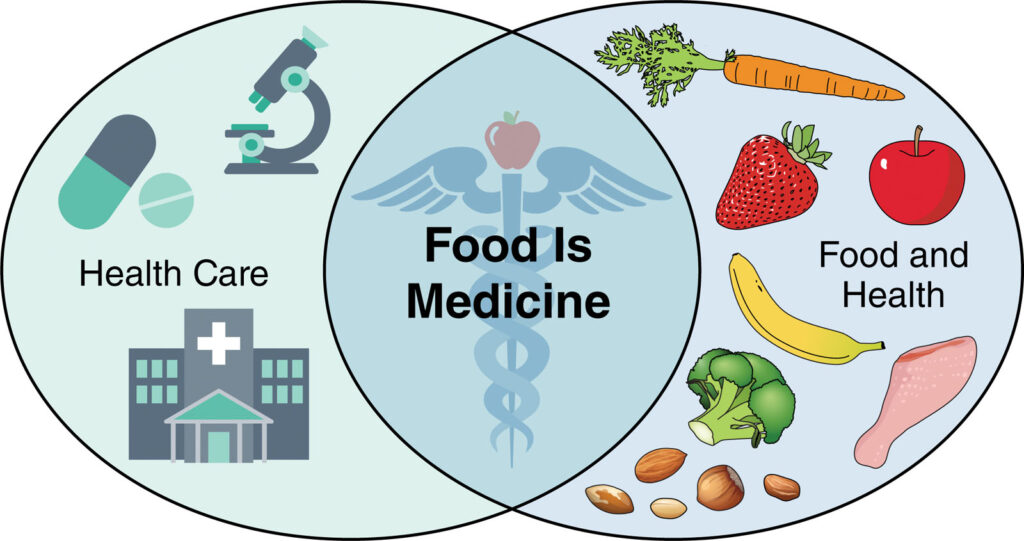Across the nation, **governors are spearheading a transformative wave in healthcare**—one that firmly establishes **healthy food as a reimbursable, vital intervention** for tackling chronic diseases. The link between **diet and health** is not new, yet we are witnessing the **integration of food-based services** into Medicaid and other healthcare delivery systems. Dubbed **Food is Medicine (FIM)**, these innovative interventions—such as medically tailored meals, produce prescriptions, and specialized grocery programs—offer states a robust policy tool to **reduce avoidable healthcare costs** and enhance health outcomes for individuals grappling with diet-related conditions. **The time to foster healthier communities through strategic food interventions is now!**
Defining Food is Medicine
The **American Heart Association** defines **Food is Medicine** as the provision of **nutritious food**—including medically tailored meals, groceries, or produce prescriptions—to effectively treat or manage specific clinical conditions. This approach is intricately woven into the healthcare system and differs from general nutrition assistance programs like the **Supplemental Nutrition Assistance Program (SNAP)** or the **Special Supplemental Nutrition Program for Women, Infants, and Children (WIC)**, which aim to combat food insecurity on a broader scale. Rather, FIM focuses on individuals whose dietary needs are tied directly to a clinical care plan for diagnosed chronic conditions, funded and delivered by the healthcare system itself.

Why Now: Health, Cost, and Policy Alignment
So why is **Food as Medicine** gaining traction right now? **The potential to combat significant public health challenges** plays a pivotal role. According to the **Centers for Medicare & Medicaid Services**, a staggering **90% of the U.S.’s annual $4.5 trillion healthcare expenditure** is directed toward treating chronic conditions—many of which are intimately linked to diet. Conditions such as **type 2 diabetes**, **hypertension**, and **heart disease** contribute substantially to preventable healthcare costs, overwhelming state budgets and disproportionately affecting low-income and historically underserved communities.
For governors seeking **cost-effective solutions** to chronic disease, **FIM presents a unique opportunity** to embed evidence-based nutritional support within the healthcare framework. These interventions are anything but abstract, as governors are actively testing them through **Medicaid Section 1115 demonstration waivers**, managed care flexibility, and public-private partnerships.
Governors and States Leading the Way
According to **KFF’s waiver tracker**, **16 states**—including **California, Colorado, Delaware, and more**—have approved or pending **Section 1115 demonstrations** that cover nutrition interventions such as medically tailored meals and groceries. Many of these initiatives are bolstered by gubernatorial leadership and collaboration across various state agencies:
- **Delaware** has received a five-year extension for its “Delaware Diamond State Health Plan (DSHP) Section 1115 Demonstration,” allowing coverage for new services, including home-delivered meals or medically appropriate shelf-stable food boxes for postpartum enrollees.
- **Oregon**, under Governor Tina Kotek, supports its **Health-Related Social Needs (HRSN)** benefit with a Medicaid waiver to fund medically tailored meals and groceries, emphasizing equity and preventive health approaches.
- **North Carolina’s** Healthy Opportunities Pilots, established under former Governor Roy Cooper, serve as a national template for leveraging Medicaid to cover non-medical services, spanning food, housing, and transportation.
- In **Massachusetts**, Governor Maura Healey is expanding medically tailored meal delivery through community partnerships, leveraging the 1115 waiver to enhance food access.
- **Oklahoma’s** Food is Medicine Act (SB 806), signed by Governor Kevin Stitt, introduces incentives for Medicaid contracted entities to expand nutrition services.
In addition to these pioneering states, **Colorado, New York,** and **New Jersey** are also piloting or expanding food-based care models, aligning these efforts with broader objectives surrounding health equity and access.
For further context, the **Kaiser Family Foundation’s Medicaid Waiver Tracker** provides comprehensive information on state-level approved and pending waivers that address social determinants of health, including nutrition.
The Challenge Ahead: From Practice to Policy
Despite the initial momentum, **scaling FIM sustainably** demands much more than promising pilot results. While the evidence base is expanding, it remains limited in scope. **Governors must prioritize the generation of robust data** that resonates with budget officials, Medicaid directors, and federal regulators to ensure FIM becomes an integral part of Medicaid coverage. This involves illustrating cost-effectiveness, clinical impact, and operational feasibility across diverse populations.
Through effective executive leadership, governors should aim to:
- Create a unifying vision for integrating **Food as Medicine** within healthcare systems;
- Foster collaboration across **Medicaid**, public health, and social service sectors;
- Invest in data and evaluation infrastructure;
- Encourage partnerships with healthcare providers, community organizations, and academic researchers.
The **American Heart Association’s Health Care by Food™** initiative works alongside states to support these endeavors, offering technical assistance in collaboration with the **U.S. Department of Health and Human Services** to design scalable, evidence-based FIM interventions while helping states develop effective evaluation plans.
Looking Forward
As the U.S. healthcare landscape evolves towards **value-based care**, **Food as Medicine** transforms from a novel idea into a viable, evidence-backed solution. With bipartisan support and tangible health impacts, governors possess an unprecedented opportunity. They can **lead the charge** not just by piloting innovative programs but also by constructing the necessary policies, infrastructure, and evidence base to make healthy food an enduring component of healthcare. **The future of Food is Medicine is bright and ripe for the taking!**
For more information about the NGA’s **Food as Medicine** initiatives and **RX for a Healthier America**, please contact Brittney Roy-Morales.





